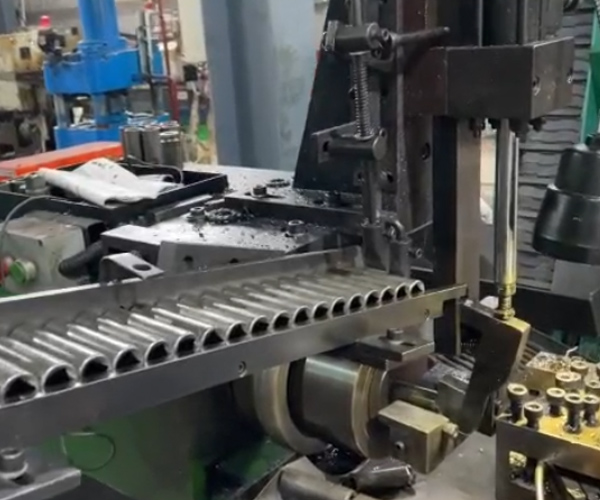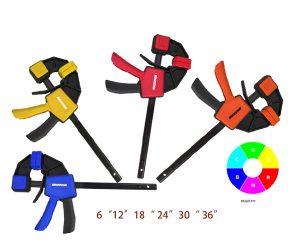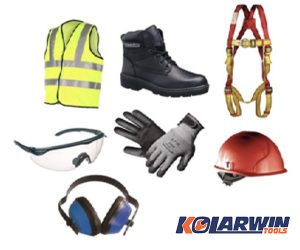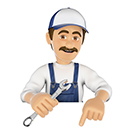INTRODUCTION
Context and Purpose
Why Compare Affordable and Premium Manufacturers
Who This Article Is For
Impact sockets play a crucial role in various mechanical, automotive, and construction tasks, yet many people remain uncertain about how to choose the right ones for their needs. You might be browsing online retailers or specialized tool shops, wondering if the brand name on the packaging justifies the higher cost, or if a budget-friendly option would serve just as well. You might be asking yourself, how do I know if I should invest more upfront or save some cash and still get decent performance? Let’s face it—impact sockets are not all created equal. Some hold up under intense torque and last for years, while others round off or crack after just a few tough jobs. Here’s the deal, this comparison between affordable and premium impact socket manufacturers aims to clear up confusion, guide you through the key differences, and help you choose tools that best suit your unique requirements. By understanding how materials, craftsmanship, brand reputation, and warranties affect quality and price, you’ll stand a better chance of making a smart investment. Ultimately, whether you’re a professional mechanic working daily with pneumatic wrenches or a weekend DIYer tackling occasional home projects, you deserve tools that balance cost and value.

UNDERSTANDING IMPACT SOCKETS
What Are Impact Sockets?
Key Features of Impact Sockets
Common Uses
Impact sockets differ from standard sockets in both design and function. Unlike regular sockets, which might be made of chrome vanadium steel and polished for aesthetics, impact sockets typically feature chrome molybdenum steel or similarly robust alloys. This composition enables them to withstand higher torque loads without breaking, shattering, or wearing prematurely. You might be wondering, what’s the big deal? Well, these tools face constant hammering action from impact wrenches and other power tools, making them prone to higher stress levels. As a result, manufacturers must ensure their products meet stringent durability standards.
Key features of impact sockets often include a thicker wall design to resist deformation, a corrosion-resistant coating like black phosphate, and precision engineering that fits fasteners snugly. Let’s dig deeper, they’re also specially heat-treated for optimal hardness and toughness. Mechanics, industrial workers, and hobbyists rely on them for tasks like loosening stubborn nuts and bolts, fixing automotive suspensions, handling construction equipment maintenance, and tackling farm machinery repairs. The reliability and strength of impact sockets can mean the difference between smooth operation and frustrating tool failures.
Common uses extend beyond automotive garages: pipeline technicians, assembly line workers, and even some DIY enthusiasts who deal with high-torque applications find impact sockets indispensable. You might be thinking, do I really need these for occasional projects? If you only deal with light loads, maybe not. But if you work regularly with impact wrenches, pneumatic or electric, it’s wise to invest in tools built specifically for intense, repeated force. Understanding these differences sets the stage for comparing the quality and price factors that come into play when choosing affordable vs. premium manufacturers.
AFFORDABLE VS. PREMIUM: DEFINING THE TERMS
What “Affordable” Really Means
What “Premium” Implies
Why Terminology Matters
When evaluating impact socket manufacturers, it’s essential to clarify what makes one option “affordable” and another “premium.” Guess what, affordable doesn’t automatically mean cheap and flimsy. Instead, it could mean a cost-effective product that uses decent-quality materials but may lack certain refinements, brand prestige, or extended warranties. Affordable manufacturers focus on delivering functional tools at lower price points, which might work perfectly fine for occasional use, hobby projects, or buyers on a tight budget.
On the other hand, premium generally signals top-tier quality, advanced material selection, meticulous manufacturing, and possibly more rigorous testing. Premium brands tend to invest heavily in research and development, ensuring each socket not only meets but exceeds industry standards. You might be asking, why spend more on premium? The answer often lies in reliability, durability, and performance under extreme conditions. Premium manufacturers might source alloys with better fatigue resistance, apply more complex heat treatments, or enforce stricter dimensional tolerances that translate into longer tool life and fewer failures.
Terminology matters because it shapes perception. The terms “affordable” and “premium” can influence purchasing decisions before anyone examines actual quality. Here’s a secret, some affordable brands offer surprisingly good value, while some so-called premium lines might be overpriced due to marketing hype. By understanding what these labels imply, readers can move beyond superficial judgments. Ultimately, you can’t judge a manufacturer solely based on whether they’re labeled affordable or premium. Instead, consider your usage scenario, desired level of performance, and the balance between cost and value to make a well-informed decision.
CORE DIFFERENCES IN MANUFACTURING PROCESSES
Material Selection
Heat Treatment Techniques
Quality Control Protocols
The divergence between affordable and premium impact socket manufacturers often emerges from the details of their production processes. Material selection stands at the forefront. Here’s the deal, premium makers frequently choose more expensive, high-grade alloys like chrome molybdenum steel known for exceptional toughness and resistance to repeated torque shocks. Meanwhile, affordable brands might opt for less costly metals that still pass basic industry standards but may not hold up as long under intensive use. This compromise isn’t always bad—light to moderate tasks might not demand the highest-grade steel, making a more affordable option sufficient.
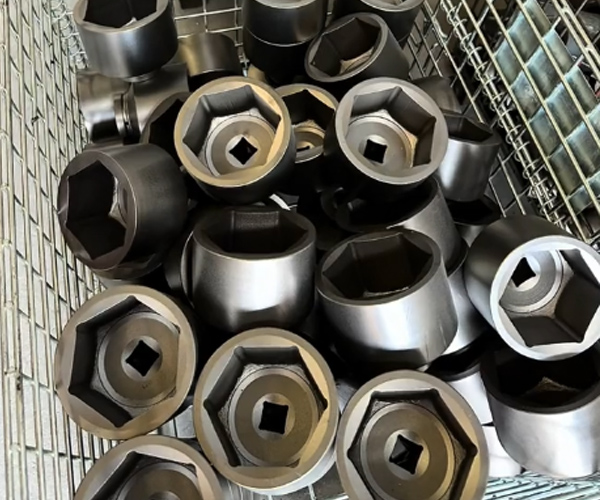
Heat treatment techniques also differentiate these categories. Premium manufacturers invest in more controlled, sophisticated heat treatments that fine-tune hardness, elasticity, and strength. Proper tempering ensures sockets can handle significant impact loads without cracks or deformation. You might be wondering, does this matter? Absolutely. Inferior heat treatment could lead to unexpected tool failure, potentially causing accidents or damaging equipment. Affordable brands may rely on simpler, less costly heat treatment processes that meet basic requirements but don’t push the material to its maximum potential.
Quality control protocols represent another key area of variation. Premium brands might employ multiple inspection stages, advanced testing apparatus, and strict dimensional tolerances. This ensures each socket from the production line matches specified criteria precisely. Affordable manufacturers may be more lenient, possibly allowing minor variations that could still be acceptable for casual users. You might think, so what’s the bottom line? Strict quality control results in more uniform performance. While it often raises prices, it can save buyers money over time by reducing replacements and downtime caused by faulty tools. In the end, manufacturing processes strongly influence whether a socket stands up to demanding conditions or falters prematurely.
BRAND REPUTATION AND MARKET PRESENCE
Recognizable Premium Brands
Lesser-Known Affordable Brands
Influence of Marketing
Brand reputation and market presence factor heavily into whether a manufacturer’s products are considered premium or affordable. Well-established premium brands command trust built over decades. These names often appear in professional toolboxes worldwide, known for consistent quality, robust warranties, and reliable customer support. You might be asking, does brand really matter that much? Consider that professionals stake their livelihoods on these tools. They want sockets that won’t fail under stress, and a reputable premium brand often carries that reassurance. Such companies also maintain global distribution networks, making it easier for customers to find replacements or related accessories.
Lesser-known affordable brands might operate on a smaller scale, focusing on delivering functional tools at lower cost. They may not spend as much on marketing campaigns or elaborate packaging. Instead, they rely on competitive pricing and practical performance to attract customers. Here’s something to think about, many up-and-coming brands use modern technology and efficient supply chains to keep costs down. While they might not have the same prestige as legacy manufacturers, they can offer remarkable value if you choose wisely.
The influence of marketing cannot be ignored. Premium brands leverage advertising, sponsorships, and partnerships with automotive or industrial professionals to reinforce their status. Affordable brands, lacking massive marketing budgets, often rely on word-of-mouth, online reviews, or direct-to-consumer sales platforms. You might be wondering, is marketing just hype? Not always. Marketing can showcase genuine quality, highlight unique features, and educate buyers. But savvy shoppers know to look beyond glossy ads and big names. Sometimes a lesser-known brand can earn a solid reputation on forums and review sites. Ultimately, brand reputation and visibility shape buyers’ initial impressions but should never replace careful examination of a product’s actual quality and performance.
PRICING FACTORS AND COST BREAKDOWN
Raw Material Costs
Manufacturing Complexity
Distribution and Retail Markups
Prices don’t just appear out of thin air. Impact sockets carry certain expenses from raw materials, production labor, machinery depreciation, warehousing, shipping, and retail markups. Premium manufacturers might start with pricier raw materials to achieve top-notch durability and resistance to cracking. You might be wondering, does that extra cost translate into noticeable benefits? Often it does, especially for users who push their tools hard. Superior alloys and coatings can last longer, offer better fit, and maintain performance through hundreds of cycles.
Manufacturing complexity also drives prices upward. Premium brands often invest in high-precision machining, stricter tolerances, and advanced quality control measures. Each inspection adds cost, but it also reduces the likelihood of defective products reaching the customer. Affordable manufacturers may simplify processes to cut time and labor. While this keeps prices down, it might result in slightly less uniformity. You might ask, is a slight variation a big deal? For heavy-duty, professional work, possibly. For weekend tinkering, maybe not.
Distribution and retail markups further influence final pricing. Premium brands, with sophisticated marketing, broader networks, and polished packaging, absorb these costs into the product price. Affordable brands may sell directly online or through simpler supply chains, passing savings to the customer. Here’s the deal, understanding these pricing factors can help buyers decide if paying extra for a premium name is worth it. In some cases, investing more upfront reduces long-term tool expenses by cutting down on replacements. In other scenarios, a moderately priced socket set suffices, avoiding unnecessary premium surcharges. Ultimately, price stems from a combination of material choices, manufacturing intricacies, and market strategies.
DURABILITY AND LIFESPAN COMPARISON
Longevity of Premium Sockets
Expected Wear in Affordable Options
The Value Equation
A key consideration when deciding between affordable and premium sockets is how long they last. Premium impact sockets often endure repeated use without losing their shape, chipping, or rounding off. The carefully chosen alloys, intense heat treatments, and tight dimensional controls ensure a longer service life. Guess what, longevity doesn’t just mean bragging rights—it translates into fewer replacements, less downtime, and consistent tool performance.
In contrast, affordable sockets may show wear signs sooner. This might include slight distortions, finish peeling, or even cracks if pushed beyond their intended capacity. You might be asking, can affordable still serve well? Certainly, for light-duty tasks and occasional use, many affordable brands hold up sufficiently. But professionals who rely on these tools daily might notice that less robust materials wear out faster, leading to more frequent replacements. When you add up the cumulative cost of multiple replacements over time, a premium option can become more economical in the long run.
The value equation emerges from balancing initial cost against total lifespan. A high-quality premium socket set might cost double at purchase but last three times longer. Here’s a secret, if longevity and reliability matter, the extra money upfront could save you frustration and expense later. On the other hand, if your needs are minimal—like changing lawnmower blades twice a year—an affordable set might offer more than enough value. Understanding the expected durability and weighing it against your usage pattern helps you choose the best investment for your unique circumstances.
PERFORMANCE UNDER STRESS
Torque Capacity
Frequency of Replacement
User Experience
Impact sockets face punishing conditions. High torque loads, sudden jolts, and persistent vibration challenge even the strongest tools. Premium sockets excel in these environments. They’re engineered not just to withstand heavy torque but to do so repeatedly over their lifespan. You might be asking, does that matter for my day-to-day tasks? Absolutely, if you’re a professional mechanic removing rusted truck wheels or a technician repairing industrial-grade machinery. The consistent performance under stress means fewer stripped fasteners, less downtime mid-job, and a smoother work experience.
Affordable sockets, while functional, may reach their stress limits faster. Frequent or intense torque could lead to surface deformities or reduced grip over time. You might think, that sounds inconvenient. Indeed, having a socket slip at a critical moment can slow you down, risk damage to workpieces, or cause injury. More frequent replacements become the norm if you push affordable sockets beyond their comfort zone.
User experience ties it all together. Professionals appreciate premium sockets because they reduce workflow interruptions. Here’s the deal, when your tools handle stress gracefully, you gain confidence, speed, and peace of mind. For casual users who rarely push tools to their limits, the difference might be less noticeable. Still, performance under stress can influence how quickly and smoothly tasks get done. If you value reliability, investing in a premium product could pay dividends in productivity and job satisfaction.
SAFETY CONSIDERATIONS
Risk of Breakage
Quality Standards and Certifications
User Confidence
Safety remains a top priority when using high-torque tools. A socket that cracks or shatters mid-operation poses serious hazards. Premium manufacturers usually produce impact sockets with strict adherence to quality standards. They often meet or exceed ANSI, DIN, or other regulatory criteria, ensuring their tools withstand significant force before showing any sign of failure. You might be wondering, how does that translate into safety? Less risk of sudden breakage means fewer chances of tool fragments flying off, damaging surroundings, or injuring someone.
Affordable options, while not necessarily unsafe, might carry a slightly higher risk if used beyond their intended capacity. Some lower-cost products skip certain certifications or rely on basic tests to confirm durability. Here’s a secret, those who know they’ll push their tools hard should consider the added safety net premium brands provide. Compliance with recognized standards can offer that extra layer of assurance.
User confidence skyrockets when working with tools known for consistent quality and minimal failure rates. You might think, is peace of mind worth paying extra for? In many cases, yes. Safety incidents cost time, money, and personal well-being. Choosing sockets that inspire trust can transform a potentially nerve-wracking task into a routine procedure. Ultimately, investing in safer tools isn’t just about following rules—it’s about protecting yourself, your clients, and your coworkers, making the premium label more than a marketing pitch.
CUSTOMIZATION AND OEM CAPABILITIES
Branding and Customization Options
Niche Requirements
Affordability vs. Personalization
In some industries, having custom tools that reflect unique branding or match specific operational requirements can set a business apart. Premium manufacturers often excel here, offering OEM services and personalized color schemes, logos, or configurations. You might be wondering, who needs custom branding on sockets? Professional outfits, racing teams, specialized manufacturing lines, and tool brands looking to build their reputation all benefit from these tailored solutions. The ability to fine-tune dimensions or coatings to meet niche applications can give companies a competitive edge.
Affordable manufacturers may not have the same degree of flexibility. Their focus on keeping costs low might mean fewer options for customization. Still, some affordable brands have recognized growing demand for differentiation and may offer limited personalization at extra cost. Here’s the deal, if you value a distinct identity, unique markings to deter theft, or specialized coatings to handle unusual conditions, premium manufacturers likely have more comprehensive offerings.
Balancing affordability and personalization poses a challenge. Custom features often add complexity and raise production expenses. Users must decide if the branding or niche specifications justify higher costs. You might ask, is customization always necessary? Not for everyone. But for businesses aiming to stand out or mechanics seeking ultra-specific designs, these premium services fill a gap that generic sockets can’t. Understanding customization capabilities enables buyers to align their choices with brand image, functional needs, and long-term goals.
PRODUCT RANGE AND AVAILABILITY
Breadth of Product Lines
Stock and Inventory Levels
Market Distribution Channels
Variety matters when selecting impact socket suppliers. Premium manufacturers often boast extensive product lines, from basic sets covering common sizes to specialized sockets designed for unusual fasteners. You might be thinking, do I need that variety? For professionals who handle diverse tasks, having one reliable source for all their socket needs simplifies procurement. This breadth also ensures you can find exactly the tool you need without mixing brands or compromising quality.
Affordable brands may offer more limited ranges, focusing on popular sizes and configurations that appeal to a broad base of cost-conscious buyers. While this keeps costs down, it might mean you’ll struggle to find a perfect fit for rare fastener types. You might wonder, how does stock and inventory come into play? Premium brands often maintain consistent inventory, ensuring tools remain readily available. Affordable manufacturers may experience periodic shortages or rely on batch production, making certain items harder to obtain if demand spikes.
Market distribution channels also shape availability. Premium brands leverage established dealer networks, e-commerce platforms, and even partnerships with hardware store chains, ensuring global reach. Affordable brands might stick to fewer online marketplaces or regional distributors. Here’s a secret, easy accessibility can influence decision-making. If you need immediate replacements or additional sizes, a widely distributed premium brand reduces downtime. Choosing the right supplier goes beyond cost and quality; it also involves logistics, ensuring the sockets you need are always within reach.
WARRANTY, RETURNS, AND CUSTOMER SUPPORT
Warranty Length and Terms
Return Policies
After-Sales Service
Warranties offer a peek into a manufacturer’s confidence in their own product. Premium brands often provide longer, more comprehensive warranties covering defects, premature wear, or certain forms of damage. You might be wondering, how does this help me? A robust warranty shifts risk from buyer to manufacturer. If something goes wrong prematurely, you’re not stuck footing the bill for a replacement. This assurance becomes especially valuable for professionals using tools frequently, where downtime is costly.
Affordable manufacturers may still offer warranties, but they might be shorter, more limited, or harder to claim. Simple return policies and direct communication channels with premium brands often streamline problem resolution. You might ask, does after-sales support matter? Absolutely. Understanding whether you can easily get help in case of a defect, ask technical questions, or clarify product specifications makes a big difference. Prompt, knowledgeable support can turn a stressful issue into a smooth, quick fix.
After-sales service extends beyond warranties. It includes troubleshooting guidance, access to spare parts, and sometimes maintenance advice. Here’s the deal, premium manufacturers who invest in service resources often attract loyal clientele. They show commitment to customer satisfaction that goes beyond the initial sale. Affordable brands may focus on providing decent products at low cost, with less emphasis on ongoing support. Ultimately, evaluating warranty terms, return policies, and customer service responsiveness helps buyers find partners who care about long-term satisfaction, not just a single transaction.
ENVIRONMENTAL AND ETHICAL CONSIDERATIONS
Sustainable Materials and Processes
Labor Standards and Supply Chain Ethics
Recycling and Disposal
The world increasingly values sustainability and ethical manufacturing. Premium brands sometimes incorporate eco-friendly materials or invest in cleaner production processes. You might be thinking, how does this affect me? While environmental considerations may not impact tool performance, they influence the broader context in which tools are made. Choosing a manufacturer that prioritizes sustainability can align with personal or corporate values.
Labor standards and supply chain ethics also matter. Some premium manufacturers ensure fair wages, safe working conditions, and transparent sourcing of raw materials. In contrast, affordable brands might prioritize lower costs, which can sometimes mean less oversight of their supply chain. You might wonder, do ethical sourcing and labor standards justify paying extra? That depends on your priorities. Supporting ethical suppliers can foster a healthier industry ecosystem and reduce the risk of human rights violations.
Recycling and disposal become relevant at the end of a tool’s life. High-quality sockets tend to last longer, reducing waste. Premium brands might offer recycling programs or guidance on responsible disposal methods. Affordable brands may not invest as much in these areas. Here’s a secret, even tools can contribute to a sustainable future if chosen wisely. Factoring environmental and ethical considerations into your decision-making can help ensure your tool purchases reflect values beyond immediate cost or performance alone.
MATCHING YOUR NEEDS AND BUDGET
Assessing Your Usage Scenario
Cost-Benefit Analysis
Finding Middle Ground
The ultimate choice between affordable and premium impact socket manufacturers hinges on how well their products align with your unique needs and budget. You might be asking, how do I figure this out? Start by assessing how frequently and intensively you use these tools. A professional mechanic or industrial technician working daily under heavy loads likely benefits from the extended durability and performance of premium sockets. A casual DIYer who changes a car’s oil twice a year might find affordable options more than adequate.
Cost-benefit analysis can guide you. Premium sockets cost more upfront, but their longevity and reliability may lower total expenses over time. Fewer replacements and reduced risk of breakage can offset the initial premium. Affordable sockets, while cheaper, may wear faster, requiring more frequent replacements. You might be thinking, which is better? It depends on your priorities. If you value long-term stability, fewer headaches, and a top-notch work experience, premium might be worth it. If you just need basic functionality on a tight budget, affordable is a sensible route.
Sometimes, the best solution lies in the middle ground. Mid-range brands or carefully selected affordable options from a reputable seller can balance cost and quality. Here’s the deal, there’s no one-size-fits-all answer. Understanding your own usage patterns, evaluating how each product category meets those demands, and considering the long-term implications of your purchase will ensure you pick the impact sockets that deliver the greatest value for your investment.
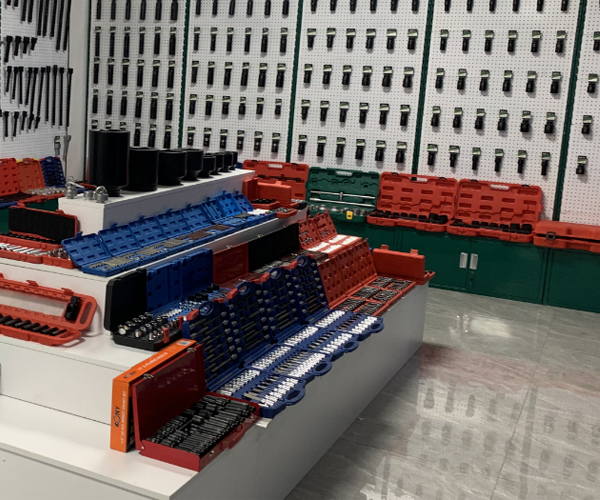
CONCLUSION AND FAQS
Summary of Key Points
Helping Readers Decide
Actionable Next Steps
You might be asking, after all this analysis, what’s the bottom line? Premium impact socket manufacturers offer superior materials, precision engineering, robust warranties, and extensive product lines. They shine under heavy use, deliver reliable performance, and inspire confidence. Affordable manufacturers provide cost savings, simpler options, and adequate durability for occasional users. The choice depends on your usage scenario, how frequently you rely on these tools, and the value you place on long-term reliability, customization, environmental responsibility, and after-sales support. Here’s the deal, make a decision that aligns with your professional or personal goals. Consider reading reviews, experimenting with a small initial purchase, or consulting peers for recommendations. Ultimately, remember that both affordable and premium options have a place in the market. The key is to understand what you’re buying, why you’re buying it, and how it fits into your long-term plans.
FAQs
Q: Do affordable sockets always mean poor quality?
Not necessarily. Some affordable brands produce durable products suitable for light to moderate tasks.
Q: Can premium sockets really last a lifetime?
Under normal usage, premium sockets often endure far longer than cheaper alternatives, though “lifetime” depends on care and conditions.
Q: How do I verify if a manufacturer meets certain quality standards?
Look for certifications, industry compliance marks, and read independent reviews from professionals.
Q: Are OEM options worth exploring for small businesses or niche brands?
They can be if customization enhances brand identity or meets unique operational requirements.
Q: Will premium sockets help me do my job faster or just last longer?
Premium sockets often provide better fit and reliability, potentially reducing delays from tool failures.
Q: How can I maintain and store sockets to extend their lifespan, regardless of brand?
Keep them clean, dry, and organized. Apply rust inhibitors if necessary, and never exceed rated torque levels.
Q: Where can I find reputable manufacturers and read unbiased reviews?
Online forums, industry publications, specialty tool retailers, and verified e-commerce platforms often offer trustworthy insights.
Reach out to Kolarwin Tools today at info@kolarwin.com and explore how our high-quality impact sockets and extensive OEM capabilities can streamline your supply chain and strengthen your brand. Contact our expert team now to discuss your specific needs, request samples, or get a personalized quote. Let’s work together to drive your business forward with reliable tools designed for excellence.

